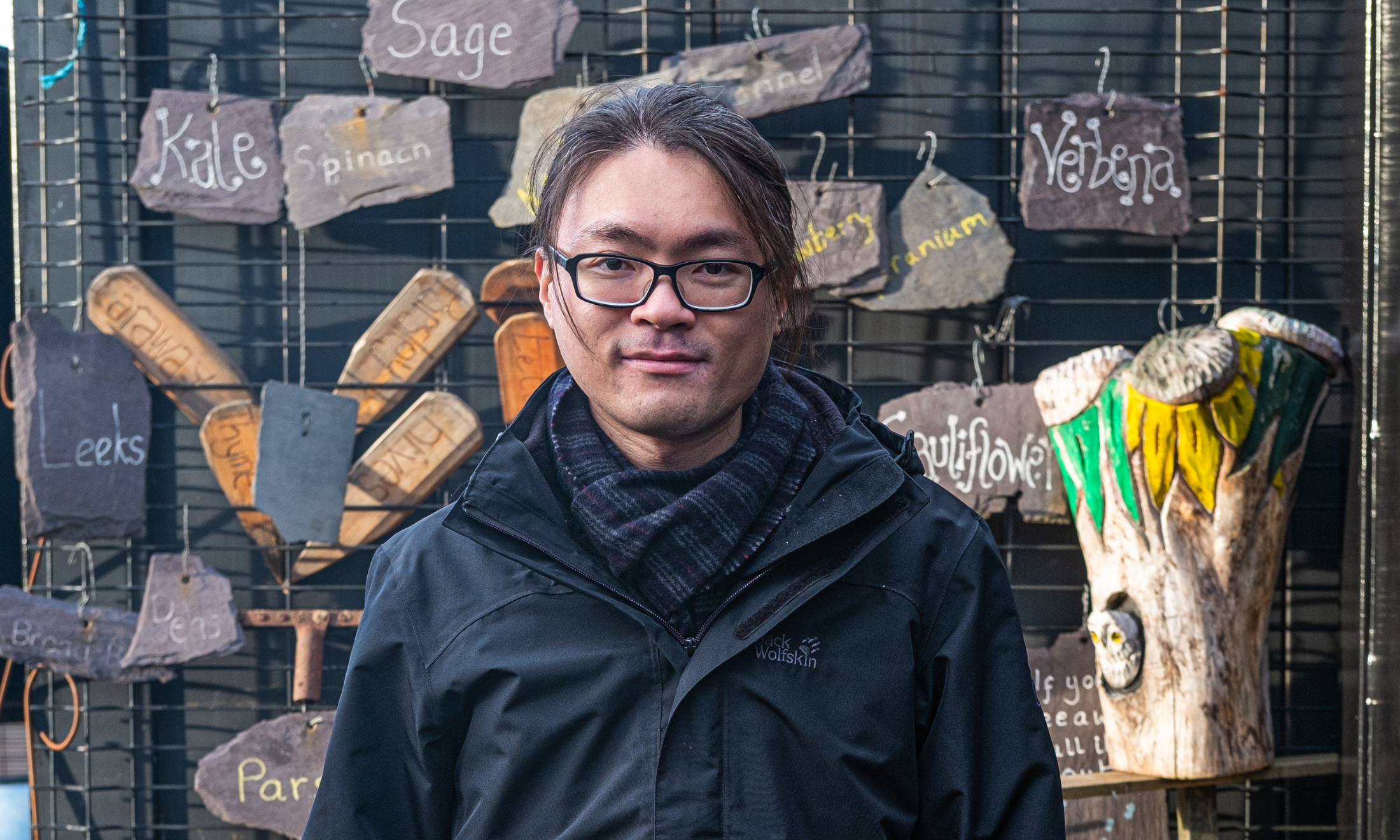In 1999, my mother settled in Rochdale, Greater Manchester, with my older sister and 18-month-old me. We had come to the UK as asylum seekers from Zambia, where we were escaping the remnants of the Rwandan genocide. Living in Freehold estate with no land of our own to cultivate was hard, especially given that my family had owned farms in Rwanda and Zambia. But, despite my everyday surroundings here in the UK, my grandparents’ house in Dayton, Ohio – where they moved to in the late 1990s for the same reasons we left Zambia, and where I visited every other summer growing up – was a place of life.
Looking back on time spent there as a teenager and remembering how I would wrinkle my nose at my grandparents’ invitations to help in their yard, much has changed. In summer 2021, I started work at Grow Speke, a community garden in south east Liverpool managed by environmental charity Groundwork UK.
“Living with no land of our own to cultivate was hard, especially given that my family had owned farms in Rwanda and Zambia”
Before workers and volunteers started clearing the site in 2017 to make way for the garden, it lay empty; more than an acre of derelict wasteland, a site of fly-tipping and criminal activity. Now you can walk through beautifully sculpted custom-cut steel alley gates to find a community green space with an apiary of thirteen buzzing beehives, raised beds with flowers and organic vegetables, a colourful wildflower meadow and much more.
The last months of my role at Grow Speke were at the beginning of winter. With less to do, I needed to forage for some creativity. Just before Christmas, I met with the director and curator of Open Eye Gallery, where I have volunteered since 2019. For ten weeks the gallery partnered with Liverpool Food Growers Network to host LOOK Climate Lab 2022, a creative exploration of climate change related themes: energy, materials, transportation, nature and food. I was asked to create my first commissioned photo series.
“Liverpool Food Growers Network has connected dozens of agriculture groups in the city, and helped shine a light on projects in unexpected places”
Liverpool Food Growers Network and Feeding Liverpool, a regional pilot of Feeding Britain, supports local partnerships to build on Liverpool’s Good Food Plan, which aims to tackle hunger in the city. Established in February 2021, Liverpool Food Growers Network has connected dozens of agriculture groups in the city, and helped shine a light on projects in unexpected places, like a churchyard with gravestones that were damaged during the Liverpool Blitz, an old pub car park, and a housing association in the city’s most deprived area. These projects share the same aims: to improve food security by growing organic crops for themselves and local community members, and bring local people together in solidarity and care.
According to research from the University of Sheffield in January 2021 into local food insecurity of adults in Liverpool, more than 5% of adults suffered from hunger, nearly 13% struggled to access food, and more than 14% worried about not having enough food. In this context, it felt important to document community efforts to find solutions for these problems.
“More than 5% of adults suffered from hunger, nearly 13% struggled to access food, and more than 14% worried about not having enough food”
I cycled around the city with my camera and inquisitiveness, visiting eight projects in various areas regularly over two months. From Speke in the south, to Aigburth and Toxteth, and the city centre and in nearby Everton, to two parks within the northern suburbs in Bootle, I captured sixty-nine faces and stories of community garden volunteers. Through making these images, I felt an appreciation for what I missed growing up: how organic farming can work when supported by a community.
This body of work is called Volunteer Voices and champions the urban stewards of our Earth. As with much of my photography work, this project takes a solutions-focused approach. These volunteers are the green fingers that keep the Good Food Plan going. I spoke to elders with experiential wisdom, younger people with a feeling of responsibility for their future, faithful environmental activists, and people originating from different parts of the world experimenting with seeds (which inspired me to do the same with seeds that I gathered on a 5-week trip to Zambia after the project finished).
I found it particularly empowering to listen to the experiences of those of the Global Majority in Liverpool, a place known for having some of the oldest minority communities in the whole of Europe and accommodating people from all around the world. Here are some of their stories.
Njobo, volunteer at Faiths4Change
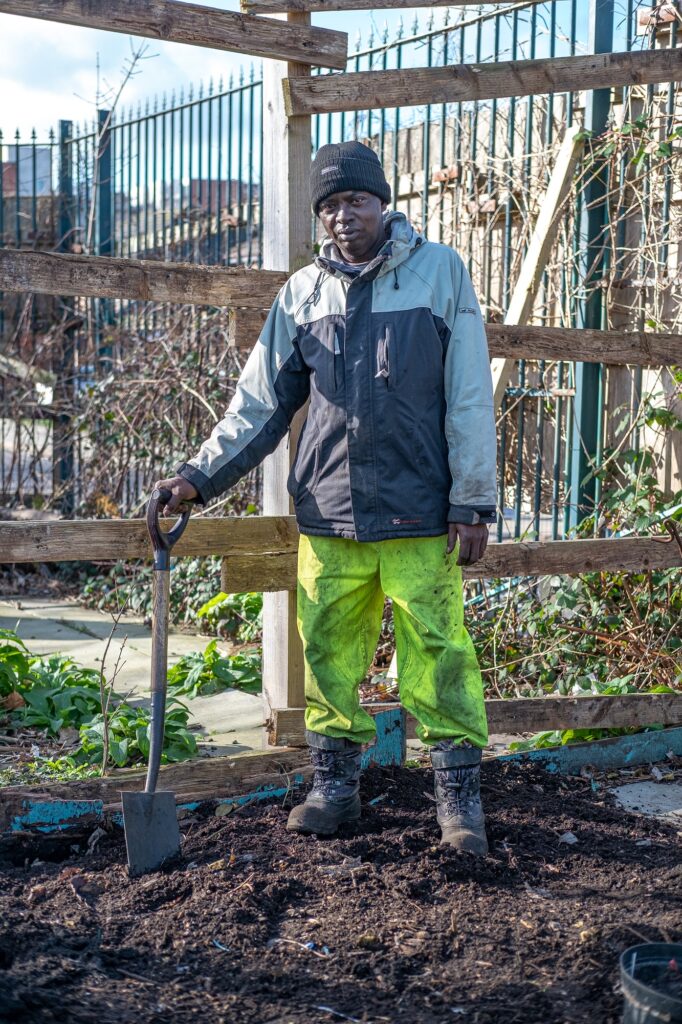
“I’ve been a gardener since I came to Liverpool in 2016. It’s like exercise, it makes you active and it’s also good to grow something and somebody benefits from it. At first, I found the weather to be so difficult but now I’ve gotten used to it.
“In Gambia, we used to grow sorghum and peanuts. We have two types of peanuts. Everything in Africa has two types. The early crops always help local people when food is coming into shortage. The first one grows faster than the other one that takes time. I planted nuts here last year. It did flower but we had a problem because the weather started changing. We’re experimenting. So I’m trying to grow different kinds of things to see whether they can survive. You never know.”
Gary, volunteer at Hope Community Garden and Growing Sudley
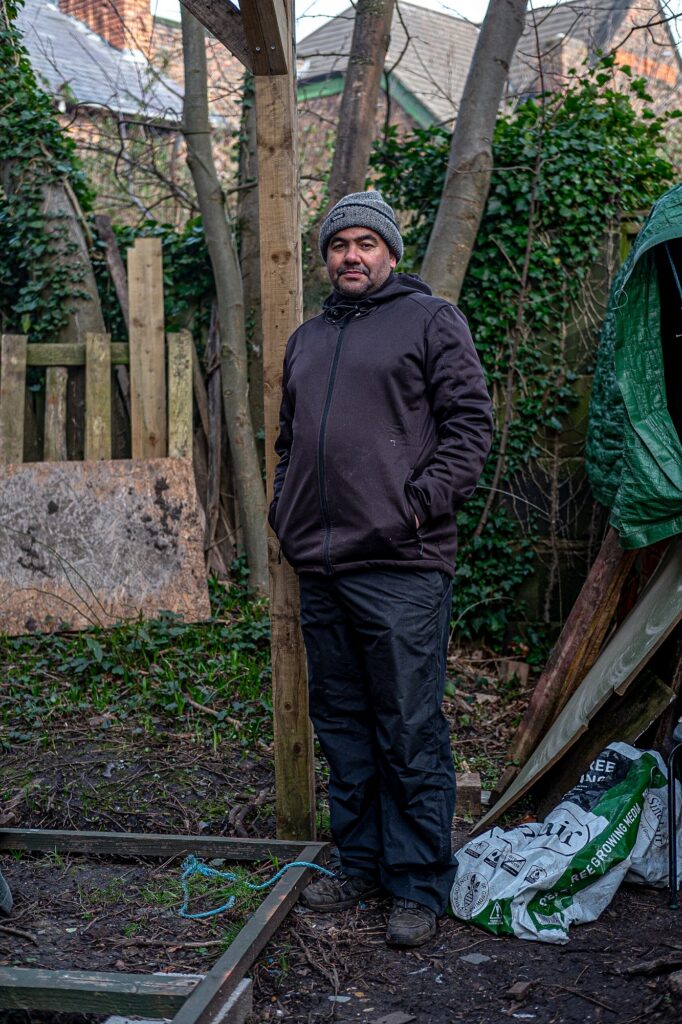
“I started coming to Sudley in 2019 because I had a stroke and couldn’t do any work. I found this through the Brain Charity and it’s been a godsend. I call it ‘Organic Therapy’.
“My family is from Jamaica. There and here everybody grows something in a little pot, even if you’ve got no space. Some thyme or some mint or something fresh that you can put in the pot and that’s how I got into it. I like to try and grow stuff that is not normally grown. One year I grew peanuts. In the summer here if you put them in early enough, they can grow. I’ve got avocados growing in the greenhouse and a banana plant. The avocado takes 4 years, it’s only about 10 inches high but it’s growing. I’ve got all kinds of stuff: fennel, asparagus. I like growing unusual stuff.“
Crystal, creative projects worker at Faiths4Change
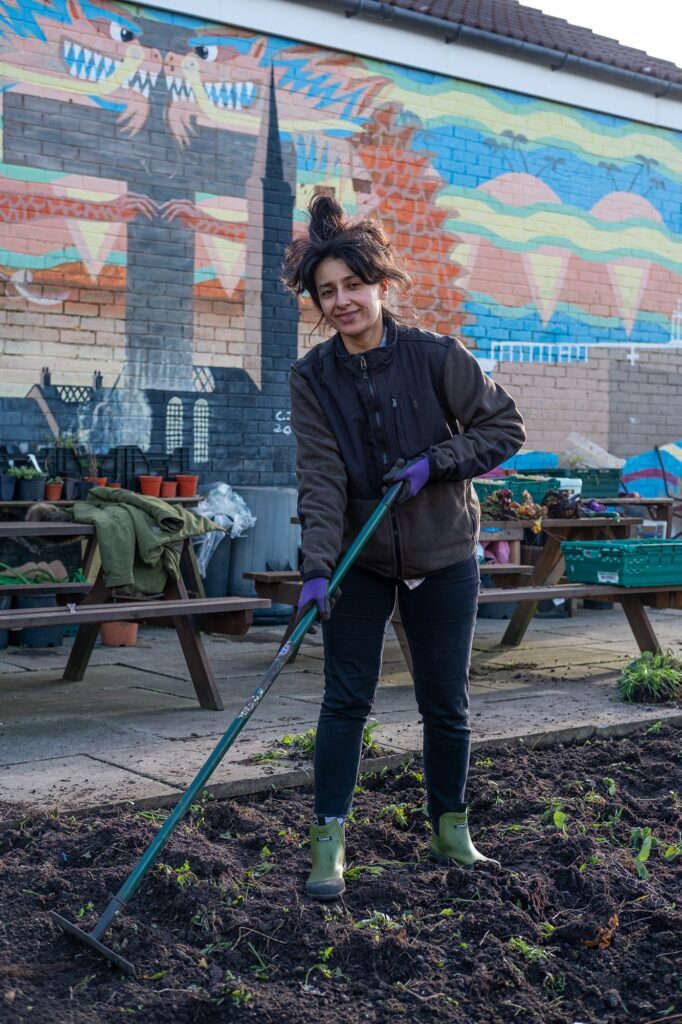
“My mum has always enjoyed doing things in the garden but as a child I absolutely hated doing anything in the garden. My grandma, when she was alive, God rest her soul, I never really appreciated all the little moments that I had with her when she was trying to explain to me how to grow things. One of the things that she used to do, she must have been in her 80s, every time she used to eat something like an apple, a lemon, anything, she would suck the seeds and she’d have compost in pots ready near her armchair, and she’d plant them straight away as she was eating everything. At the time, I never appreciated it until now, I think, ‘yeah! My nan used to do that!’ She was from India so I think traditionally for her it was something she needed to do.”
Felix, volunteer at Friends of Everton Park Community Garden
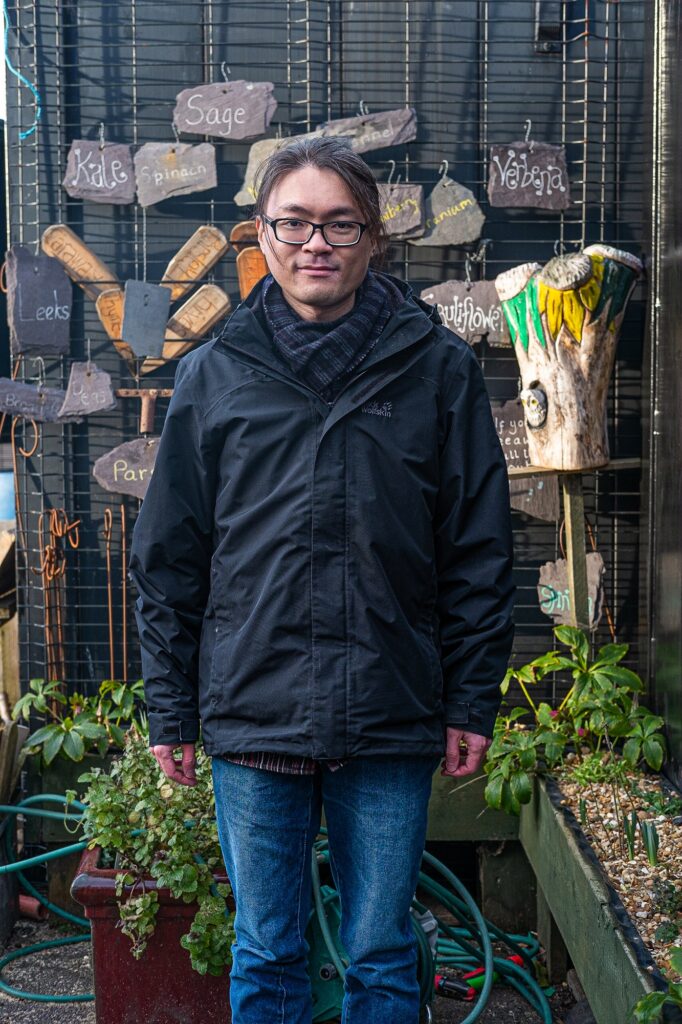
“I think I’ve been here maybe since May of 2021, just last year. My sister was walking through Everton Park one day and I think maybe John invited her to take a look in the community garden. My sister brought me here and I come nearly every week.
“It’s totally new for me and I enjoy it because I found it’s quite fun doing gardening. I think it’s a calm down for me because I was coming from Hong Kong which is a big city, so it’s quite busy. It’s hard for you to find a place to rest mentally and physically so I think in garden work you find a place which can give you some safety inside your head. It’s quite meaningful for me, communicating between different cultures and I can tell other people about my culture and about myself.”
The contribution of our members is crucial. Their support enables us to be proudly independent, challenge the whitewashed media landscape and most importantly, platform the work of marginalised communities. To continue this mission, we need to grow gal-dem to 6,000 members – and we can only do this with your support.
As a member you will enjoy exclusive access to our gal-dem Discord channel and Culture Club, live chats with our editors, skill shares, discounts, events, newsletters and more! Support our community and become a member today from as little as £4.99 a month.

